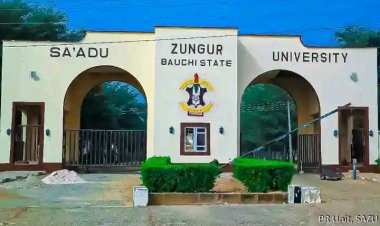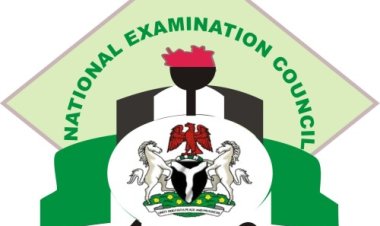UNIZIK Controversy: Newly Appointed VC Prof. Odoh Declares Ministry of Education Lacks Power to Overturn Appointment
Prof. Bernard Odoh, the newly appointed Vice Chancellor of Nnamdi Azikiwe University (UNIZIK), has rejected the Federal Ministry of Education's attempt to nullify his appointment, asserting that the Ministry lacks the legal authority to do so.

In response to recent developments, Prof. Bernard Odoh, the newly appointed Vice Chancellor of Nnamdi Azikiwe University (UNIZIK), Awka, has asserted that the Federal Ministry of Education has no legal authority to nullify his appointment. Odoh, who was appointed by the UNIZIK Governing Council as the university’s 7th substantive vice-chancellor, issued a statement through his Personal Media Assistant, Mr. Charles Otu, clarifying the legality of his position.
Odoh emphasized that his appointment adhered strictly to the university’s governing statutes and due processes, dismissing the Ministry’s attempts to void his appointment. He reaffirmed his readiness to assume office on Tuesday, upholding the council’s decision as binding and lawful.
The controversy began after the Federal Ministry of Education, in a letter dated November 1, declared Odoh's appointment "null and void" due to unresolved issues within the institution. The letter, signed by Mrs. R. G. Ilyasu on behalf of the Ministry’s Permanent Secretary, called for a reconciliation process before any appointments would be recognized.
Odoh’s media assistant highlighted that, under Nigeria’s laws, the Ministry of Education oversees national education standards but lacks the authority to interfere in university council decisions. "The Ministry of Education’s role is advisory; it does not possess the power to control university governance or appointments," Otu remarked, referencing the Nnamdi Azikiwe University Act, Cap 139 (as amended), which grants the council autonomy in key administrative decisions.
According to Otu, the council’s appointment process met all statutory requirements, including the quorum stipulated in the Standing Orders, which mandates the presence of five members, including at least one representative from the Visitor, the Vice-Chancellor or Deputy, and a Senate appointee.
The statement underscored that the university council operates as an autonomous entity with the responsibility for appointing leadership positions, including the vice-chancellor, without direct interference from the Ministry. "University councils in Nigeria are legally recognized as autonomous governing bodies empowered to make such appointments independently,” Otu asserted.
The ongoing dispute has sparked reactions from the university community, including the UNIZIK Senate, which recently resolved not to participate in any further selection processes until the criteria for appointing a vice-chancellor, initially published in a national newspaper, are clarified.
In light of the tension, Prof. Odoh reiterated his commitment to leading UNIZIK, stating that he remains steadfast in fulfilling his mandate as approved by the Governing Council, while awaiting any further developments from the Ministry.

 Chris Oyeoku Okafor
Chris Oyeoku Okafor 



